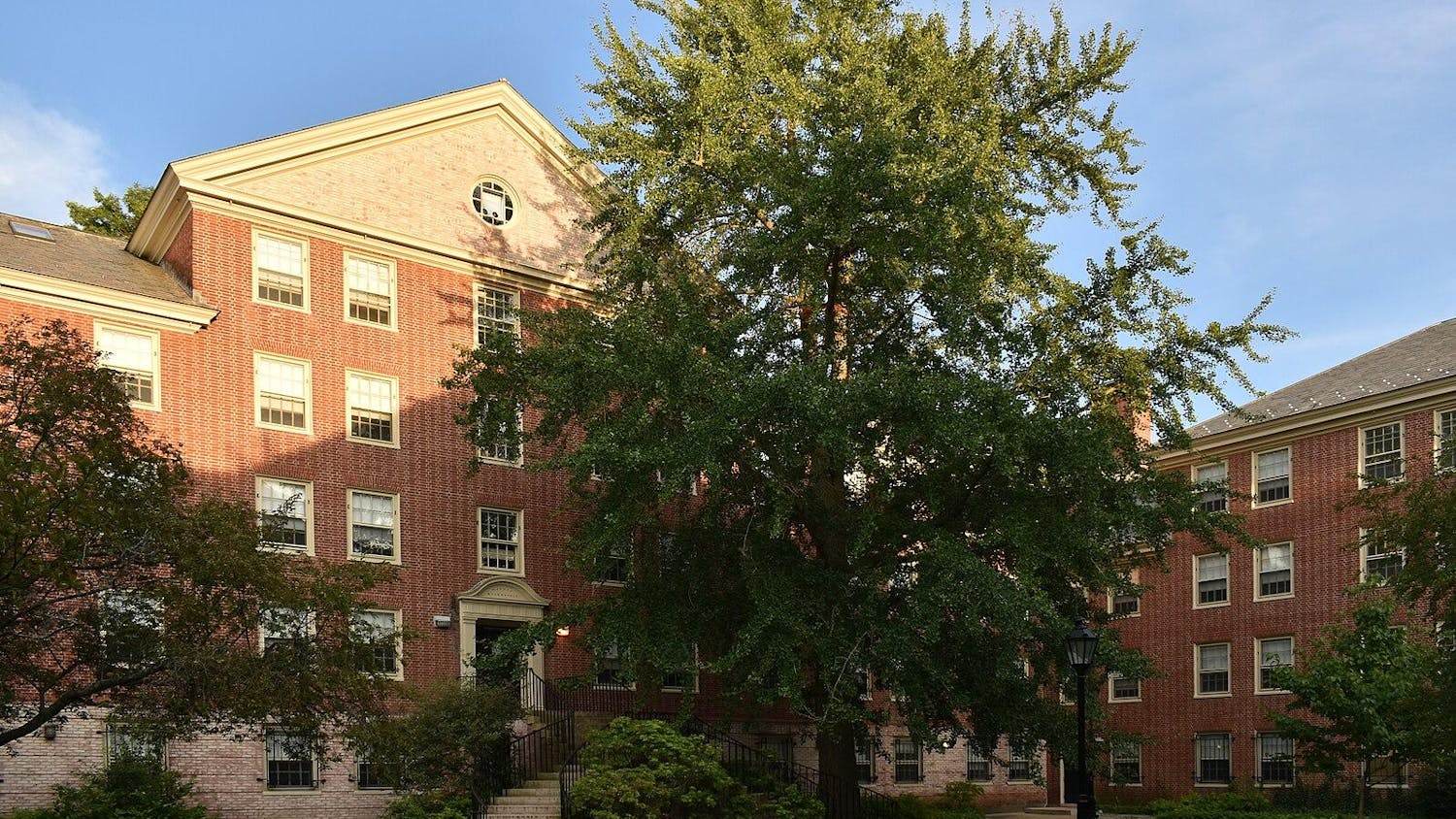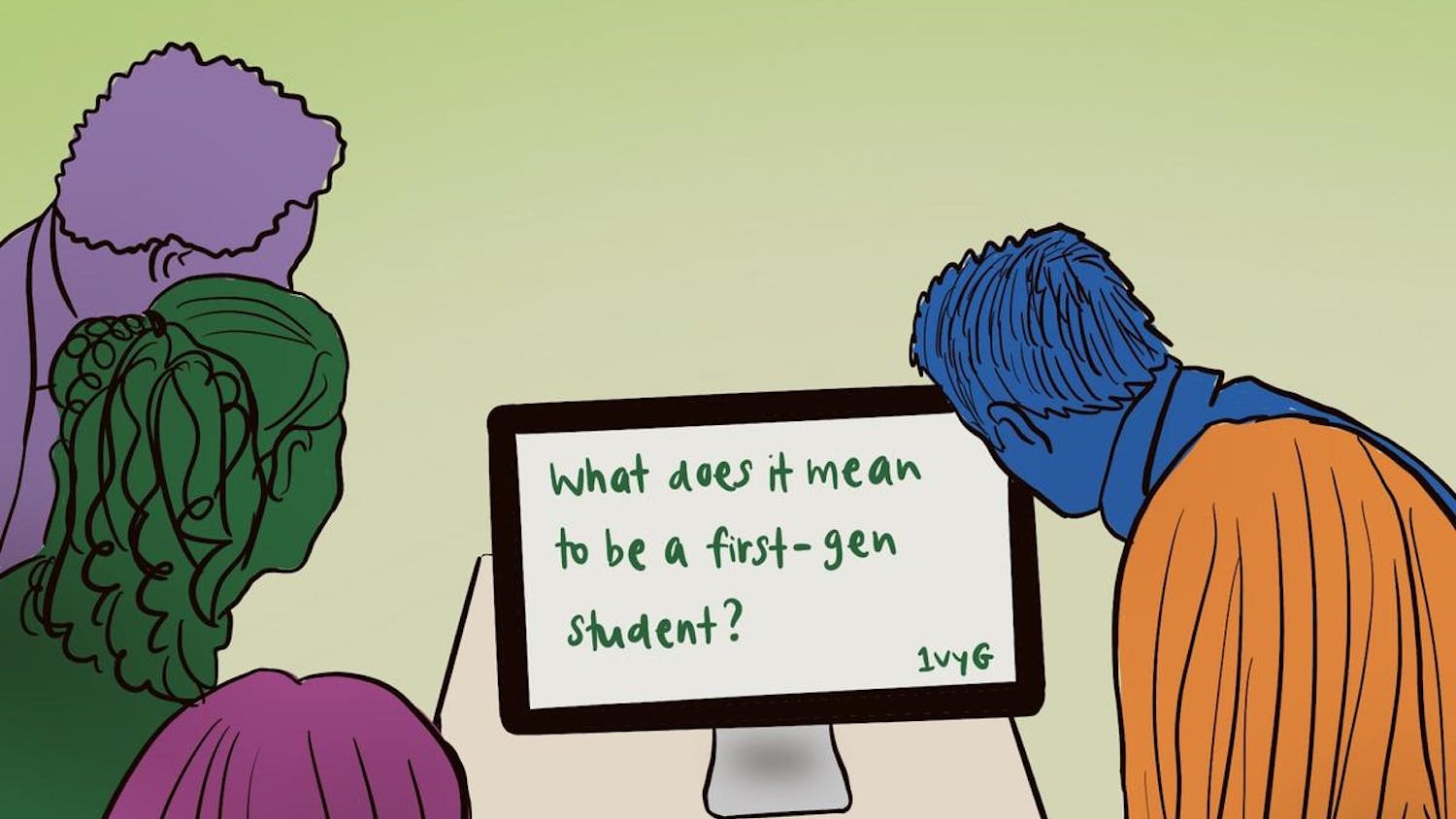In an April 25 meeting with leadership of at least eight publications, the Undergraduate Finance Board clarified its decision to not approve funding for student publications’ printing expenses for spring 2018.
Chair of UFB Jordan Ferguson ’17 said UFB will not cut spring 2018 printing budgets entirely, but UFB intentionally did not approve them in order to begin a conversation with publications about how to reduce their printing costs. Student publications were meant to interpret the complete rejection of funds for printing in spring 2018 as “pending,” rather than as a final decision, Ferguson said. Budget requests returned by UFB to student publications April 17 showed that no print funding was granted by UFB for the spring 2018 semester. The rejection of printing costs was followed by a UFB email that announced the April 25 meeting, in which UFB would “discuss the future of funding printing costs for publications” with leaders from student publications, according to a copy of UFB’s email obtained by The Herald.
“Printing costs take up a significant portion of our allocation, and it isn’t a sustainable practice for the Student Activities Fund. You will see that your groups have received funding for fall printing costs but not for spring. The board would like to present some alternative and work with you all to find the best solution,” the email read.
Ferguson cited an overall tightening of UFB’s budget for the next academic year to an influx of new student groups demanding funding from UFB which were previously funded by the School of Engineering and the Swearer Center for Public Service.
“If we give everyone fall printing, everyone can operate as normal,” Ferguson said. “But now we can have a conversation, almost a full year in advance, detailing how we can go forward knowing that budget constraints are going to be tighter next year,” Ferguson said.
Editors from several publications expressed initial frustration over UFB’s lack of communication regarding the perceived denial of funding for printing publications, The Herald previously reported. UFB declined to comment to The Herald until after the April 25 meeting.
Jane Argodale ’18, metro editor and an incoming co-managing editor for the College Hill Independent, said UFB’s email to publications following the perceived cuts “sent us into a state of panic because it wasn’t clear that we would get any of our print funding back at all,” Argodale told The Herald.
“I really wish (UFB) opened up this conversation before they’d sent out these budget proposals,” Argodale said. “It would have been a lot more comfortable for us to be having a conversation about reducing our costs if it didn’t just start with a zero.”
“The ways (student publication leaders) were put on hold and the ways we were strapped for any root of communication that felt productive for that full week meant there was no way for us to actually mobilize,” said Dolma Ombadykow ’17, co-managing editor of the Indy, at the meeting.
Jordan Stein ’17, editor-in-chief of the Brown Noser and of the Brown Jug, mentioned another miscommunication involving his UFB representative, which occurred before the budget requests were returned.
“The reason why we have any sort of reaction to the budgeting decision was because when we met with our UFB rep, he told us explicitly that it was UFB’s intention, as an organization, to move all print publications online within the next few years completely,” Stein said. “He said that definitively.”
But this “was a miscommunication,” Ferguson said.
Ferguson apologized for the lack of communication between UFB and publications, and “the miscommunication and misinformation that has been circulating for the past week,” he said. “UFB chose not to respond … in an effort to make sure that all of you all were hearing it from us first and … to make sure that it wasn’t a back-and-forth ‘he said, she said.’”
The response from alums to the perceived printing cuts was significant, Ferguson said. He mentioned an online petition that was created to restore funding to the Indy and other student publications. Over 400 people, some of whom are alums who work in the publishing or journalism industry, signed the petition. Though he received several emails from alums about the perceived printing cuts, Ferguson said he waited to respond until after he had met with publication leaders.
The pressure to tighten the spring budget began at the start of the spring 2017 semester when UFB learned that it would absorb a number of student groups previously funded by the School of Engineering and the Swearer Center beginning fall 2017, Ferguson said. The new financial commitment encompasses approximately 20 additional student groups “with very large budgets,” he said.
Associate Dean for Programs and Planning for the School of Engineering Jennifer Casasanto could not be reached by press time to confirm that the School of Engineering will continue to fund all of its student groups for the 2017-18 academic year. But in an earlier interview, she said it had funded the groups during the 2016-17 academic year.
“Engineering has not cut any funding (for student groups) … but has tripled the amount of student funding in just the last three years,” she said .
Dean of the College Maud Mandel confirmed that, since September 2016, student groups from the Swearer Center have drawn funds from the Student Activities Office. The center has “formed a partnership” with SAO to transfer “existing balances associated with any (Swearer Center) student group” to the SAO, Mandel wrote in an email to The Herald. However, for the 2017-18 academic year, the Swearer Center will stop transferring funds to the SAO to fund those groups, she wrote.
“In September (2017), the Swearer Center Student Advisory Committee will be developing a policy and procedure for allocating funds it controls for student requests that fit the strategic direction of the center,” Mandel wrote.
UFB’s draws its budget from the student activities fee, which for the 2016-17 academic year was $274 per student — adding to a UFB budget of $2.1 million, Ferguson said. UFB’s budget funds not only student groups but also the Sarah Doyle Women’s Center, LGTBQ Center and Brown Center for Students of Color, as well as others groups, he said.
All student groups that receive funding from UFB are categorized by the Undergraduate Council of Students as Category II or Category III student groups. Both categories receive a baseline funding of $200 from UFB, and Category III student groups “may request supplemental UFB funding,” according to the Undergraduate Council of Students’ website. Every academic year, UFB sets its budget to include a “rollover” of approximately $300,000 from the previous year’s budget, Ferguson said. This money adds to UFB’s budget for supplemental funding, which is where most money comes from for student publications.
Every fall, UFB can make a request to the University Resource Committee to increase the student activities fee, thereby increasing UFB’s budget for the next academic year, Ferguson said. This request is made before UFB determines the allocation of its budget that spring. In fall 2016, UFB believed it could successfully distribute funding for the 2016-17 academic year and maintain its usual $300,000 rollover for the 2017-18 academic year, Ferguson said. Because of this, it did not request an increase in the student activities fee for the 2017-18 academic year, which it would have needed to do in fall 2016, Ferguson said.
“In September, when we were approached by the URC, we declined to ask for an increase given the fact that, for the past two years, we had asked for an increase,” Ferguson said. He added that the URC often does not grant activity fee increases if UFB constantly asks for one, as that “doesn’t show any forethought.”
UFB is now in a position where it not only is unable to request additional funding for the 2017-18 academic year but also has to fund more groups for the year.
When UFB learned that it would have to fund newly categorized groups without additional funds, UFB had to decide whether it should let more people draw from the pre-set budget, or “leave groups out hanging to dry,” Ferguson said.
UFB examined its three largest financial commitments — transportation costs, performance groups and student publications — for possible reductions to its budget to compensate for the additional student groups requiring funding, Ferguson said.
To reduce transportation costs, UFB will attempt to partner with major transportation companies to set a fixed, discounted price for a bulk number of tickets, Ferguson said. To reduce performance group costs, UFB is asking groups to reuse costumes.
For publications, UFB allocated approximately $90,000 for the 2016-17 year solely for publication printing costs, a figure that has been increasing since 2014, Ferguson said.
UFB proposed three possible plans to reduce print budgets in 2017-18, Ferguson said.
Similar to how it plans to reduce transportation costs, UFB may house all the publications under a single printer in order to standardize a fixed, discounted price in return for bulk printing. Currently, publications employ a number of printers and are left autonomous to find their own printers, Ferguson said. Alternatively, publications might internally review the number of printed copies actually read in an attempt to reduce the overall number of copies. Third, UFB would pay for a publication to shift to a website if the publication wishes to go fully digital.
Ferguson also made clear that UFB would offer flexibility to publications who want to find ways to reduce their budgets.
“We’re willing to work with all of you to make sure everyone gets what they need and everyone gets what they want. We’re not trying to take anything away from anyone,” he said. “I want that to be very clear.”
The next step for student publications is to return to their executive boards and discuss possible means to reduce their printing expenses, Ferguson said.




